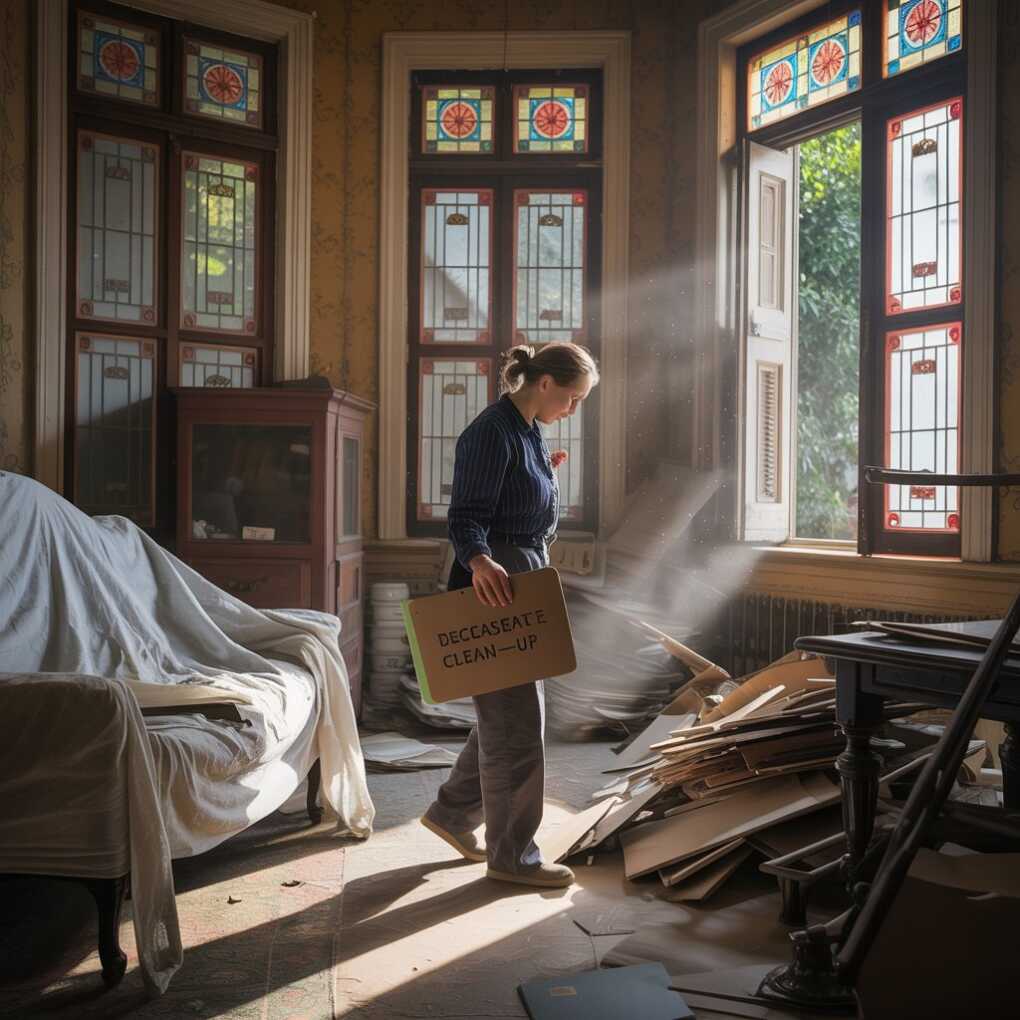Dealing with the loss of a loved one can be an incredibly tough and emotional time for anyone. In the aftermath of grief, there is often a practical necessity that requires immediate attention – the clean-up and clearing out of the deceased’s property. In Sydney, managing a deceased estate clean-up can be overwhelming, but a structured approach and understanding of the process can make it manageable.

The Importance of a Deceased Estate Clean-up
One of the reasons a deceased estate clean-up is important is because it ensures that the possessions and property of the deceased are respectfully and legally managed. Estate clean-up is not just about rubbish removal; it’s about sorting through what could be decades of memories and making decisions about what to keep, donate, sell or discard.
Additionally, an estate clean-up can be necessary to prepare a property for sale, as a part of the administration of the deceased’s estate. It can also provide closure for bereaved family members, aiding them in the mourning process by dealing positively with the tangible aspects of their loved one’s life.
Getting Started with Estate Clean-up
Initially, it’s vital to make an inventory of all items in the estate. This can help in making decisions and ensuring that no valuable or sentimental items are lost. Moreover, it is advisable to look for any legal documents, such as wills or insurances, that might affect how the estate should be dealt with.
Once a clear idea of the necessary tasks is at hand, the actual clean-up process can begin. It’s at this stage families often realise the sheer volume of work and decide to seek professional assistance for deceased estate rubbish removal in Sydney.
Sorting and Organisation
Sorting through a deceased person’s belongings is no easy feat. There could be valuable items alongside many years’ worth of accumulated possessions which hold no financial but possibly sentimental value. The sorting process usually involves categorising items into those to be kept by the family, those to be sold or donated, and those to be disposed of as rubbish.
Classifying and organising items during the clean-up can help distribute or dispose of them properly. It’s often suggested to handle one room at a time to avoid feeling overwhelmed.
Professional Help and Services
Professional services can prove invaluable for families going through the estate clean-up process. They have the expertise and experience to handle the clean-up respectfully and efficiently, removing both the physical and emotional burden from the family members. They also have the necessary equipment to dispose of items that cannot be easily transported by family members, such as furniture or hazardous materials.
Choosing the Right Service Provider
When seeking a service provider for deceased estate clean-up, it’s essential to choose a company that is respectful, punctual, and sensitive to the nature of the task at hand. It’s also important they are licensed and adhere strictly to environmental and legal regulations for the disposal of items.
Researching and comparing service providers beforehand can ensure that the one selected aligns with the family’s expectations and needs. Reading customer reviews and asking for referrals can provide insights into their reliability and quality of service.
Recycling and Donating Possessions
Part of the clean-up process is determining which items can be recycled or donated. Many items from a deceased estate, such as clothing, books, and furniture, may be in good condition and could benefit charity shops or community organisations. It’s an eco-friendly alternative to simply discarding belongings and can provide some solace knowing that the items are helping others.
Handling Sensitive Items and Documents
Certain items, especially personal papers, photographs, and sentimental items, will need to be handled with care. Families must take the time to review these items to ensure that they are not discarding something of significant sentimental or financial importance. It’s also crucial to securely destroy any sensitive documents that could lead to identity theft or fraud.
Respecting the Emotional Process
While the physical aspects of estate clean-up are challenging, the emotional journey can be even more demanding. Family members and friends should be allowed to grieve in their own time and way. Part of the clean-up process may involve sharing memories, recalling stories, and speaking about the deceased, which can be therapeutic.
Setting a Timeline
It’s helpful to establish a timeline for the deceased estate clean-up. This can provide focus and ensure that the process doesn’t drag on indefinitely, which can become burdensome. However, it’s equally important to remain flexible as emotional hurdles may require the timeline to be adjusted.
Legal Considerations
During an estate clean-up, legal considerations must be taken into account. It is necessary to ensure that the process adheres to the terms of the will and that all legal requirements surrounding asset distribution and property settlement are met. Consulting with a lawyer who specialises in estate administration may be advisable in some situations.
Conclusion
Deceased estate clean-up in Sydney is a significant task that involves much more than just removing rubbish. It encompasses emotional, organisational, and legal challenges. By approaching it with care, respect, and perhaps the help of professional deceased estate rubbish removal in Sydney, the process can be managed in a way that honours the memory of the loved one and provides closure for those left behind.
Remember, estate clean-up is a step towards celebrating the life of the deceased, ensuring their legacy is preserved and that their final wishes are respected. With the right approach and support, navigating Sydney’s deceased estate clean-up can be conducted with dignity and care.
